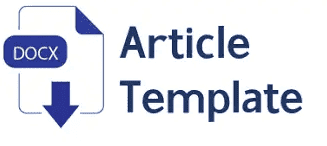Sustainable Environmental Policy: Harmonization between National Law and Local Wisdom in Makassar City
DOI:
https://doi.org/10.71435/639064Keywords:
Local Wisdom, National Law, Adaptive Management, Legal Pluralism, Community-Based PracticesAbstract
Purpose: The study examines the correlation between national environmental policy and local common sense with respect to sustainable environmental management in the city of Makassar, Indonesia. It emphasizes the intersections between official law, customary knowledge systems, and natural understandings at the local level.
Subjects and Methods: The research employs a qualitative approach, drawing on interviews, on-site observations, and document analyses to capture both regulatory perspectives and community-based practices.
Results: The findings indicate that although national regulation provides the structural framework and legal authority required to address environmental management, its interpretation frequently conflicts with the socio-cultural practices of local populations. These tensions stem from the rigid prescriptions of formal regulations and institutional blind spots that fail to recognize the legitimacy of indigenous environmental norms. Makassar’s local wisdom expressed through community laws, collective rituals, and ecological taboos remains vital in shaping communal environmental action but is often marginalized and insufficiently incorporated into policymaking.
Conclusions: The study argues that sustainable environmental governance should move beyond compliance-based regulation toward culturally sensitive policy development and coordinated implementation across multiple institutional levels. Successful harmonization of national law and local wisdom requires adaptive governance, trans-sectoral consultation, and legal pluralism. By situating environmental policy within management studies, the research proposes a conceptual framework of co-managed governance that balances top-down controls with bottom-up knowledge, offering practical strategies for inclusive and sustainable outcomes.
References
Abdullah, M. K., Anuar, A. R., & Hara, A. E. (2022). Contesting authority discourses in defining relations between Indonesia and Malaysia: A case study in the Kalimantan border areas. Journal of International Studies, 18, 191-217. https://doi.org/10.32890/jis2022.18.7
Berman, E. M., Bowman, J. S., West, J. P., & Van Wart, M. R. (2021). Human resource management in public service: Paradoxes, processes, and problems. Cq Press.
Evans, J., & Thomas, C. (2023). Environmental governance. London: Routledge.
Gani, P. J. A., Asmal, I., Amin, S., & Nadjmi, N. (2025). Transforming slums into sustainable tourism destinations on the coast of Makassar City, Indonesia. Journal of the Geographical Institute" Jovan Cvijic", SASA, (00), 14-14. https://doi.org/10.2298/IJGI250111014G
Hutahayan, B., & Fernandes, A. A. R. (2024). Enhancing Sustainable Build Environments through Ecotourism Villages in Mount Bromo Tengger Semeru National Park, Indonesia. In Rethinking Pathways to a Sustainable Built Environment (pp. 361-378). Routledge.
Kellner, E., Petrovics, D., & Huitema, D. (2024). Polycentric Climate Governance: The State, Local Action, Democratic Preferences, and Power—Emerging Insights and a Research Agenda. Global Environmental Politics, 24(3), 24-47. https://doi.org/10.1162/glep_a_00753
Knott, J. H., & Payne, A. A. (2004). The impact of state governance structures on management and performance of public organizations: A study of higher education institutions. Journal of policy analysis and management, 23(1), 13-30. https://doi.org/10.1002/pam.10176
Kuzmanov, I. (2025). Cognitive inertia and status quo bias: Understanding resistance to change from mind to society. Journal of Novel Research and Innovative Development, 3(4), a393-a411.
Månsson, J., Eriksson, L., Hodgson, I., Elmberg, J., Bunnefeld, N., Hessel, R., ... & Redpath, S. M. (2023). Understanding and overcoming obstacles in adaptive management. Trends in ecology & evolution, 38(1), 55-71.
Maulida, S., & Juwono, V. (2025). Integrating Population Education within Multilevel Governance in Indonesia: A Systematic Literature Review. Administratio, 16(1), 85-100. https://doi.org/10.23960/administratio.v16i1.484
Mohd Salim, J., Anuar, S. N., Omar, K., Tengku Mohamad, T. R., & Sanusi, N. A. (2023). The impacts of traditional ecological knowledge towards indigenous peoples: A systematic literature review. Sustainability, 15(1), 824. https://doi.org/10.3390/su15010824
Mugnai, I. (2022). The ECB and the technocratic politics of ideas: embedding a resilient EMU from the top-down? (Doctoral dissertation, University of Warwick).
Ng'ang'a, I. N., Robinson, L. W., Eba, B., Flintan, F. E., Ontiri, E. M., Sghaier, M., ... & Moiko, S. S. (2021). Comparative Analysis of CBRM Cases in Kenya, Ethiopia and Tunisia.
Omweri, F. S. (2024). A systematic literature review of e-government implementation in developing countries: examining urban-rural disparities, institutional capacity, and socio-cultural factors in the context of local governance and progress towards SDG 16.6. International Journal of Research and Innovation in Social Science, 8(8), 1173-1199. https://dx.doi.org/10.47772/IJRISS.2024.808088
Peddi, B., Ludwig, D., & Dessein, J. (2023). Relating inclusive innovations to Indigenous and local knowledge: a conceptual framework. Agriculture and Human Values, 40(1), 395-408. https://doi.org/10.1007/s10460-022-10344-z
Rahim, M., & Abbas, I. (2024). The Development Characteristics of Makassar City in Past and Present. International Review for Spatial Planning and Sustainable Development, 12(2), 238-265. https://doi.org/10.14246/irspsd.12.2_238
Rusnaedy, Z., Haris, A., Congge, U., & Prianto, A. L. (2021). Adaptive climate change governance in Makassar, Indonesia. Journal of Governance, 6(2), 244-258. http://dx.doi.org/10.31506/jog.v6i2.12384
Sanga, N., Gonzalez Benson, O., & Josyula, L. (2022). Top-down processes derail bottom-up objectives: a study in community engagement and ‘Slum-Free City Planning’. Community Development Journal, 57(4), 615-634. https://doi.org/10.1093/cdj/bsab037
Setiawan, I., Hendra, A., Taebenu, M. M., Johannes, A. W., & Sidiq, F. F. (2024). Integrating Local Culture in Smart City:‘Sombere’Based Governance Collaboration in Makassar City, Indonesia. Jurnal Bina Praja, 16(3), 541-556. https://doi.org/10.21787/jbp.16.2024.541-556
Sevä, M., & Jagers, S. C. (2013). Inspecting environmental management from within: The role of street-level bureaucrats in environmental policy implementation. Journal of environmental management, 128, 1060-1070. https://doi.org/10.1016/j.jenvman.2013.06.038
Sharma, S. K., & Pathak, S. L. (2024). Urbanization, Population and Environment. Springer.
Sutrisno, N., & Mahardhika, N. G. (2022). Liberalisation of Banking Services Under the Framework of Asean Economic Community: an Indonesian Perspective. Hang Tuah Law Journal, 33-45.
Tarigan, M. I., & Hafandi, R. (2024). Law diversities for climate change: legal pluralism and climate governance in Indonesia. Otoritas: Jurnal Ilmu Pemerintahan, 14(3), 589-605.






